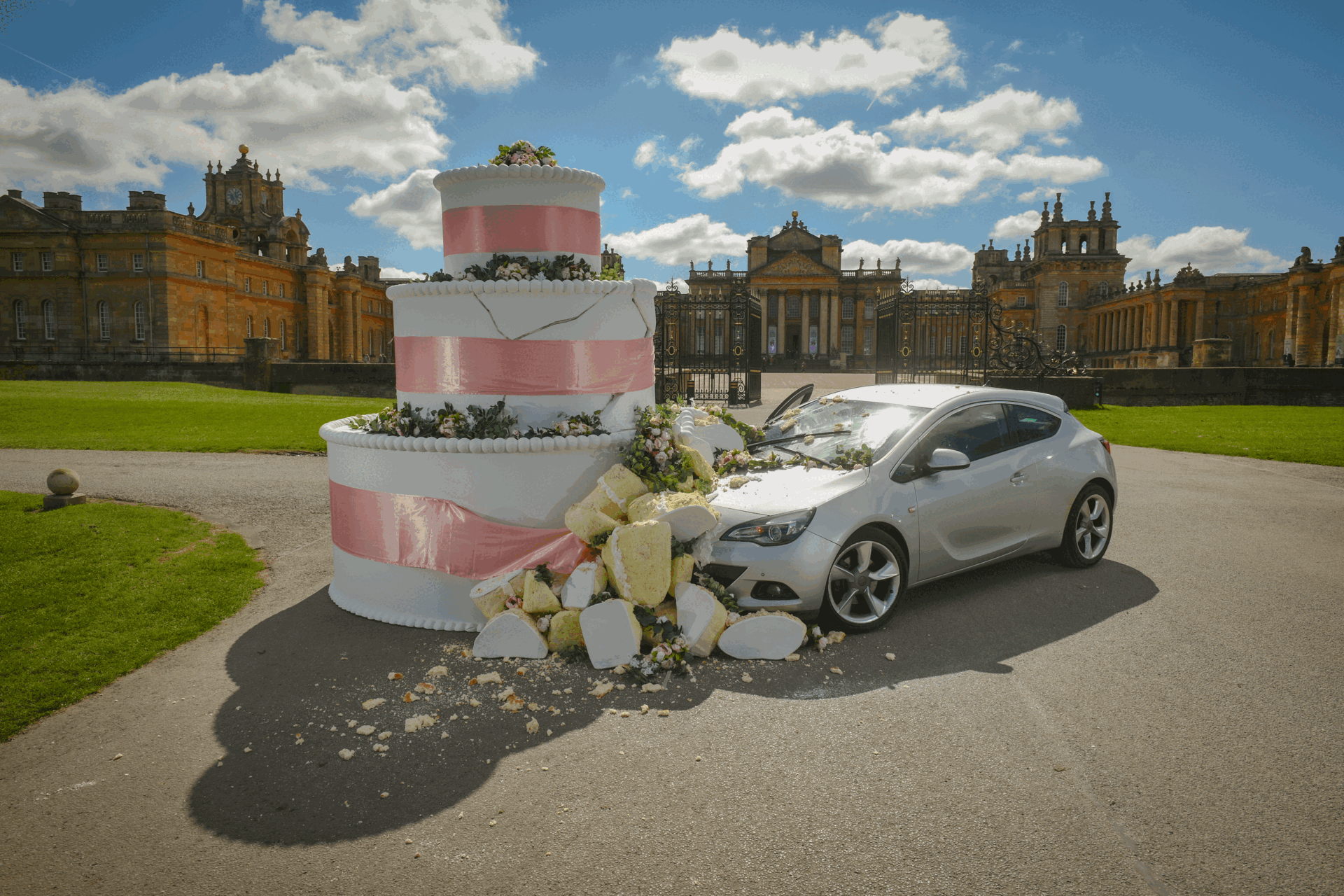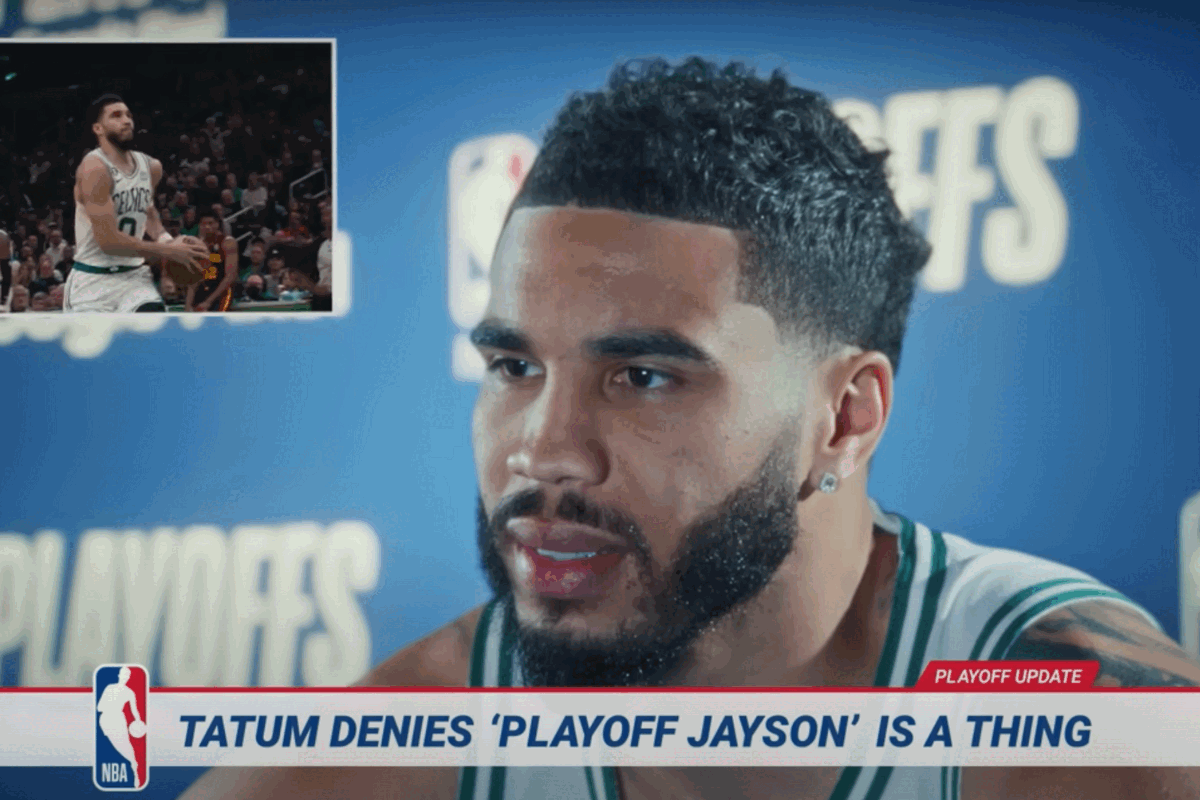Dedicated Follower of Fashion
- Friday, February 19th, 2016
- Share this article:

With New York Fashion Week wrapping up and London Fashion Week just getting started, hundreds of designers, brands, clothing retailers and consumers are keeping a watchful eye on the emerging trends for the autumn/winter 2016 season. With technology playing an increasing roll in both the production and consumption of these events, how can mobile marketers take advantage of the buzz generated by such unique moments?
The fashion industry is a huge one, and increasingly a digital one – in 2015, £12.4bn was spent on fashion online, up 16 per cent from the previous year, and representing 29 per cent of total spending online.
“London Fashion Week brings together the best minds in fashion, and with so much excitement around designs, retailers are likely to see a rise in sales,” said Joshua Mora, founder of fashion retail app Handpick. “A higher percentage of sales are conducted online in the UK than anywhere else in the world, and the rise of digital shopping platforms has meant more people than ever are shopping online.
“App-based shopping forms a large part of this market and we can certainly expect to see a boost in sales volumes off the back of London Fashion Weeks cultural and artistic influence.”
While the digital revolution has undoubtedly had an impact on how fashion retail takes place, its also changing how brands and marketers interact with events like London Fashion Week. Fashion weeks used to be an exclusive showcase of the new trends, with only industry insiders and celebrities able to witness the catwalk shows, and coverage limited to glossy magazines that had access to the best designers. However, the growth of the internet and mobile has changed all that.
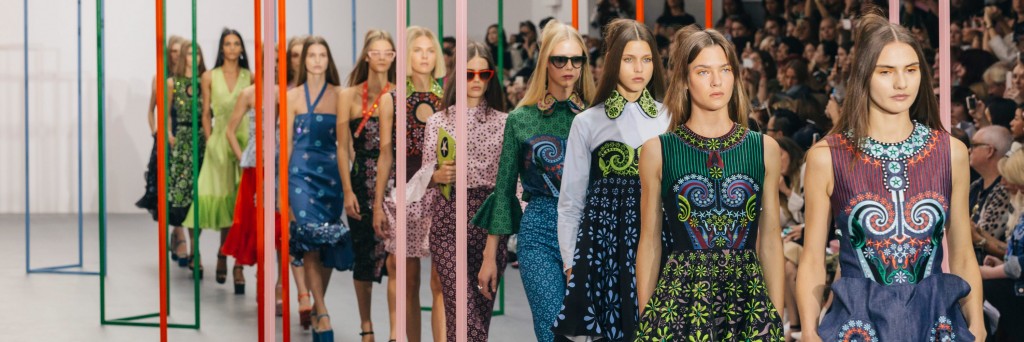
Shows are now streamed live to the public, and new outfits barely have time to reach the end of the catwalk before they appear on Instagram feeds and Twitter hashtags. For the 2016 Spring/Summer London Fashion Week, people in 152 different countries viewed the live stream, and this seasons event has 60 outdoor screens streaming content around the country, which will reach 35m people, with an additional 2m seeing content on the Curve screen in Piccadilly Circus.
“Collaborating with Ocean Outdoor means that we are able to bring British talent and London Fashion Week to more people than ever before,” said Caroline Rush CBE, CEO of the British Fashion Council. “At a time when many conversations are taking place around connecting fashion weeks with consumers, this is a perfect opportunity to reach both new and existing fashion fans throughout the UK.”
Social media has become an essential component of designers and brands approach to fashion weeks, with last seasons London Fashion Week hashtag garnering over 500,000 mentions on Twitter, and 100,000 images on Instagram during the show. Even in the lead up to this weeks event, there have been almost 6,000 Instagram posts using the #LFW2016 hashtag, with the Facebook-owned photo sharing platform increasingly the most popular way of sharing content around events like this.
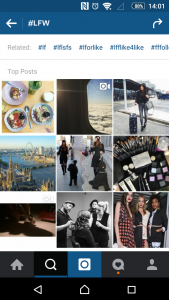 “For the first time, London Fashion Week is more about Insta-style than Twitter-trends, with four times more posts being shared on this social media channel,” said Andreas Pouros, COO and co-founder of digital marketing company Greenlight. “Heralded as the shop window of the future, Instagram offers marketers incredible promise to grow and attract their audiences, as well as influence and enable consumer purchases.”
“For the first time, London Fashion Week is more about Insta-style than Twitter-trends, with four times more posts being shared on this social media channel,” said Andreas Pouros, COO and co-founder of digital marketing company Greenlight. “Heralded as the shop window of the future, Instagram offers marketers incredible promise to grow and attract their audiences, as well as influence and enable consumer purchases.”
“The beautiful thing about fashion is that its so visual,” said Richard Jones, CEO of digital marketing engagement platform EngageSciences. “People take photos of themselves when theyre looking good, when theyre truing on a dress or a new pair of shoes, and they want to share it, and they do in volume.
“Because of the filter capabilities on platforms like Instagram, pretty much anything thats been shared is of a reasonable quality now, and now it doesnt take a brand marketer long to find fantastic user-generated content of people wearing their products.”
Tools like social commerce and marketing through user-generated content are now the key to approaching events like London Fashion Week. With so many people interacting with brands on social media, innovations like Twitters Buy Buttons and Pinterests Buyable Pins enable marketers to transform the buzz surrounding these events into the start of a path to purchase.
Smart brands are combining these shoppable experiences with user-generated content, which consumers react to more positively than traditional brand images. Net-a-Porters social platform, The Net Set, offers shoppable reviews that are constantly evolving, based on interactions from their community, while last year Marc Jacobs partnered with fashion magazine Grazia to create a curated area of their website that gathered user-generated content surrounding London Fashion Week to form a best of the buzz section.
“The social, mobile world that we live in today makes it extremely easy for switched-on fashion retailers to tap into that buzz, filter it and curate it, and put it directly into the purchase journey of consumers who are excited and stimulated by London Fashion Week, and are looking for styles and trends similar that they can purchase,” said Jones.
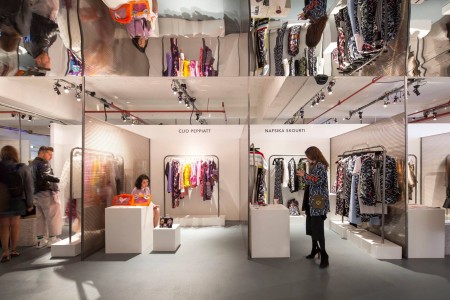 “There’s a huge amount of research out there that says that consumers trust other people more than they trust brands and traditional advertising. There’s about a seven per cent increase in conversion when you put user-generated content at the end of a customer journey, in an online store. There’s a 28 per cent increase in brand engagement when you mix user-generated content with brand-generated content on sites.”
“There’s a huge amount of research out there that says that consumers trust other people more than they trust brands and traditional advertising. There’s about a seven per cent increase in conversion when you put user-generated content at the end of a customer journey, in an online store. There’s a 28 per cent increase in brand engagement when you mix user-generated content with brand-generated content on sites.”
Social media and user-generated content also enable brands that arent actively present at events like London Fashion Week to take advantage of the buzz, showcasing get the look-style promotions on their website using a mix of images from fashion shows with their own products which link to trends that are proving popular at London Fashion Week.
“Harnessing that user generated content and getting it out across your platform, as a fashion retailer, is the best way of associating yourself with the event without actually being there, directly showcasing your products and services,” said Jones “What London Fashion Week does is change the style calendar, for everybody else down the fashion food chain. Being able to instantly react to those changes in styles and trends that are stimulated by London Fashion Week is key.”
As it has in so many other areas, social media and mobile are breaking down the barriers to entry, enabling more and more consumers to engage with events in real-time and from the frontline. The brands that are taking advantage of these trends are the ones who will forge the best relationships with consumers, engaging them with up-to-the-minute content that feels authentic, relevant and timely, and ultimately making the most of the opportunities events like London Fashion Week can offer brands.










